20 Tips for Camping in Summer

Summer is one of the most popular times of the year to go camping, and it’s easy to see why.
Long days, warm weather, plenty of sunshine, and lots of seasonal festivities to enjoy make summer the perfect time to get outdoors with family or friends.
Here are our 20 tips for having fun and staying cool during your summer camping trip.
Meals and Food
- Proper food storage – Proper food storage is crucial for a successful camping trip, especially during the summer when temperatures can rise. Use an Esky with ice packs to keep perishable food items fresh. Invest in a high-quality cooler with insulation to maintain a low temperature.
Consider a cooler with thick walls and a good seal to prevent warm air from entering. If possible, use a separate cooler for perishable items like meat, dairy, and fresh produce. This minimizes the frequency of opening the cooler, helping to maintain a colder temperature, and helps to prevent cross-contamination.
If possible, replenish ice regularly, especially if you’re on an extended camping trip. Consider bringing extra ice packs or freezing more water bottles as backups.
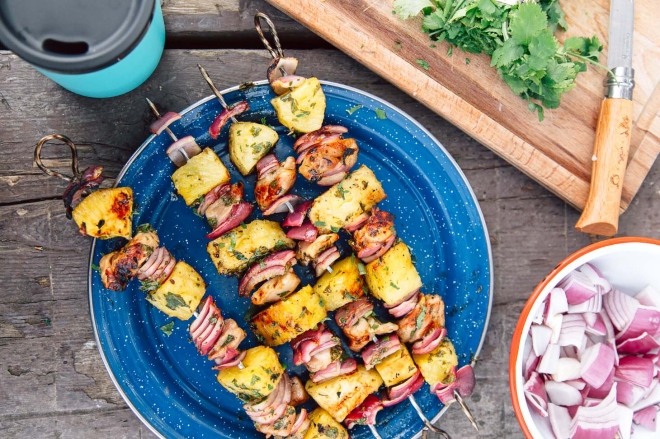
- Bring frozen water bottles – Pack frozen water bottles to use to keep food cold instead of loose ice cubes. Loose ice is undrinkable once it melts, but frozen water jugs or bottles will double as drinking water when they melt!
- Plan easy camping meals – Plan meals that require minimal cooking or no cooking on especially hot days. Do as much prep ahead of time as possible, and opt for simple, light meals that are still nourishing.
Prawns on the barbeque cook in just five minutes and make for an easy and delicious campsite meal. Seasonal summer vegetables on skewers with sausages are another tasty and easy-to-prepare option. Check out our list of easy summer camping recipes for more ideas.
Planning Activities
- Consider everyone’s needs – To maximise the enjoyment of your trip, consider the needs of everyone in your group.
If you’re camping with seniors, be sure to bring comfortable seating that’s not too low to the ground. If you’re traveling with pets, be sure your campsite allows animals and that you bring along their food, medications, and any other necessities.
If you’re camping with kids, pack some of their favorite books or games to keep them entertained in case you get a rainy day. As always, be sure to pack any necessary medicines, emergency contact numbers, and other important items in a waterproof bag.
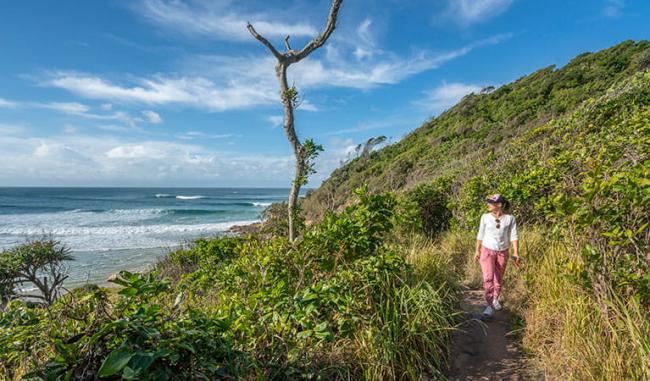
- Physical activities – Plan activities with the weather in mind. On particularly hot days, plan physical activities like hikes early in the morning, when it is cooler, instead of the afternoon. Summer is a great time to go swimming, so consider camping near the ocean or another body of water.
Begin your day with yoga on the beach, have a game of beach volleyball, or practice your photography skills in nature.
- Local attractions – In addition to enjoying nature in the immediate vicinity of your campsite, explore what else is on offer in the area!
Summer is the time for farmer’s markets, festivals, concerts, and more. Your campsite can be the perfect homebase for you to explore a nearby town for the day. For example, the coastal town of Byron Bay is famous for its beautiful beaches, but also offers an abundance of cultural activities during the summer.
Shop local boutiques, have dinner al fresco, visit a local artisans’ market, or learn about Aboriginal culture.

- Plan ahead – A little planning goes a long way. Keeping in mind that summer is a popular time to go camping, try to book your trip in advance to ensure you get a spot at your favorite campsite.
Before you arrive at your campsite, make sure you’re aware of the rules and regulations. This includes fire restrictions, noise limits, and restrictions on pets or wildlife.
Check the weather forecast and pack accordingly. Have an emergency plan in place in case of a sudden storm or if someone in your party gets injured.
- Burn bans – The dry summer months can make it dangerous to have campfires. Check if campfires are allowed at your camping destination and, if not, bring alternatives like a portable gas stove for cooking.
- Pack solar lights – Enjoy warm summer nights at your campsite with a solar-powered lantern or string of lights. These lights will collect power during the day and help you find your way in the dark at night.
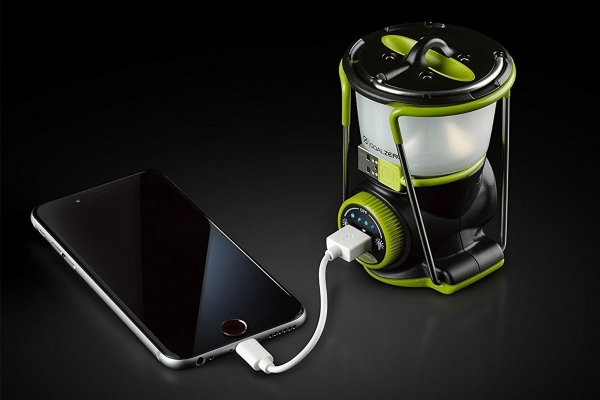
Safety
- First aid – A well-stocked first aid kit is essential for any camping trip, especially during the summer when outdoor activities are common.
Be prepared for minor injuries with a first aid kit, equipped with bandages, antiseptic, gauze, pain relievers, thermometer, anti-bacterial wipes, and other essential items.
Include tweezers for removing splinters or ticks; scissors for cutting bandages or tape; antihistamines and anti-itch creams for insect bites and rashes.
- Bug repellant – Nothing can spoil a day in nature like being eaten alive by bugs! Bugs like mosquitos aren’t just a nuisance, they can also carry and transmit disease.
And the summer months are prime time for mosquitos and other insects. Wear topical insect repellent during the day to help keep bugs away. Citronella is also effective for keeping insects away from your campsite.
Did you know that orange light is less attractive to bugs than white light or blue light? If you want to sit outside at night without attracting a swarm of mosquitos, try a lamp or lantern with orange light. If you’re sleeping outdoors, place an insect net around your hammock or sleeping area to protect you during the night.
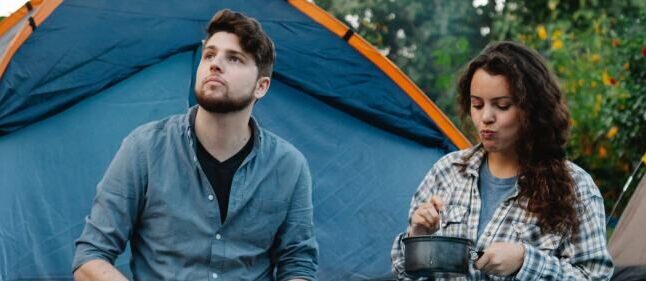
- Sun protection – Don’t let a painful sunburn get in the way of your summer camping experience! Wear sunscreen with an SPF of 30 or more, and remember to reapply throughout the day especially after swimming.
Loose, lightweight clothing can help shield you from harmful rays as well, and a wide-brim hat provides extra shade for your face and neck. Protect your eyes from harmful UV rays by wearing sunglasses with UV-blocking lenses. Consider polarized lenses for reduced glare.
Beat the heat
- Stay hydrated – Staying hydrated is always important, but especially in the summer when warm temperatures and strong sun can dehydrate you quickly. Be sure to drink plenty of water during the day, especially during physical activity like hiking, swimming, or playing games on the beach.
Bring a portable water filter if you’re not going to be close to a reliable drinking water source. It’s also a good idea to bring along some electrolyte powers or sports drinks to help keep you hydrated. Pay attention to signs of dehydration, such as headaches and fatigue.
- Shade – Keeping your tent or camp chairs out of direct sunlight can go a long way towards keeping you cool.If possible, place your tent in a naturally shady spot.
An awning or canopy can be used to create shade near your campsite. You can even use a reflective tarp over your tent to deflect sunlight and keep the interior cooler. And, as a bonus, the shade cover will also help keep you dry if it rains.
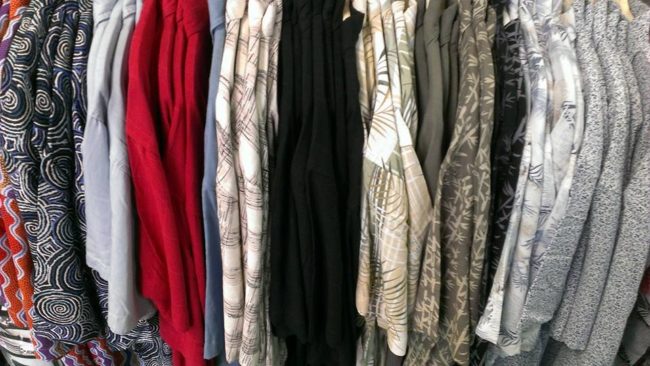
- Pack the right clothes – Wear lightweight, breathable clothing to help you stay cool all day. Light colours absorb less sunlight, so opt for light coloured clothing. Look for clothing with UPF (Ultraviolet Protection Factor) for added sun protection.
Breathable materials like linen, cotton, or moisture-wicking synthetic fabric will help you stay comfortable. Long sleeves and long pants in a lightweight material can protect your skin from UV rays and keep insects from biting.
Keep in mind that temperatures can vary significantly from day to night during the summer months. If you’re sleeping in a tent, you may want to pack some layers of clothing in case it gets chilly when the sun goes down. Don’t forget a swimsuit if you’re camping near the beach! And comfortable footwear is a must.
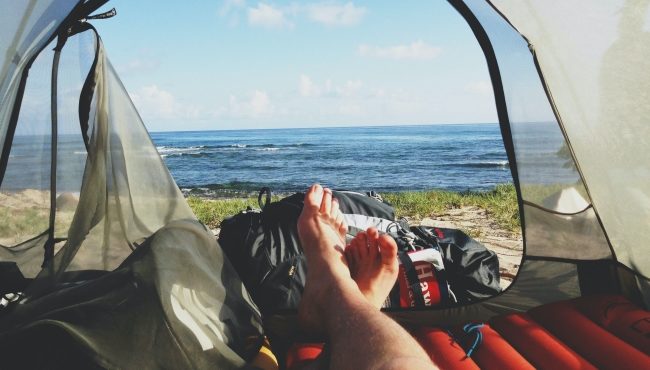
- Tent ventilation – It can get stuffy inside your tent at night when the weather is warm. Ensure good airflow in your tent. Use mesh windows and doors to promote ventilation, and consider a tent with a rainfly that can be partially rolled back for better airflow.
You might also consider a battery-powered camping fan to create a soft breeze and promote air flow inside your tent. And of course, you might want to ditch the sleeping bags for a lightweight quilt and cotton sheet when it’s time to sleep, depending on the nightly temperatures.
- Cooling towels – It’s always a good idea to have extra towels on hand during a camping trip. When the weather is hot, a towel soaked in cold water placed around the neck or forehead is an easy way to cool down quickly. As the water evaporates, it will continue to cool your body down.
Choosing where to camp
- Location – Choosing the right camping location can make a big difference in your enjoyment of your time in nature. Broken Head Holiday Park is located minutes from Byron Bay, one of Australia’s most scenic summer destinations. Our campsite and cabins are just steps from the beach and the ocean, so you can take a dip to cool off whenever you like.
- Amenities – Another major factor to consider when choosing a camping location is the campsite’s amenities. A major advantage of choosing a campsite with amenities is that you can travel lighter.
Instead of packing a camp stove and all sorts of kitchen equipment, you can use the campground’s outdoor camp kitchen and barbeque area. Need to rinse off the bug spray and sunscreen? Shower facilities can help you feel refreshed.
Everyone’s preferences are different, so consider what creature comforts matter the most to you when planning your trip.
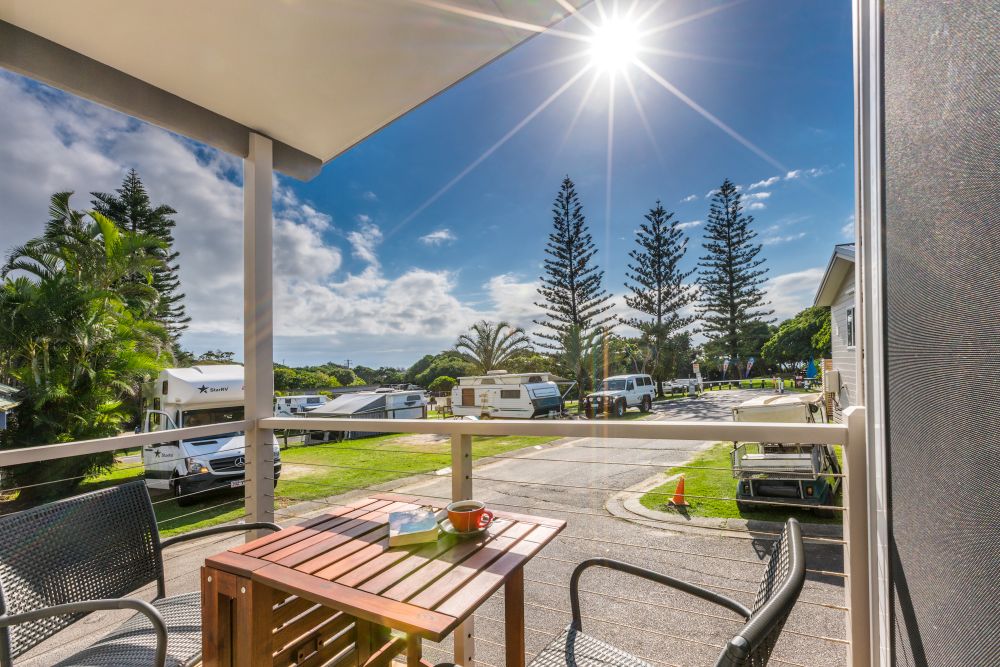
- Accommodation – Will you be camping in a tent or a caravan? Would you prefer to sleep beneath the stars, or retreat to an air conditioned cabin a stone’s throw from the ocean? Do you need space for a large family gathering? Would you prefer to fully unplug, or do you want access to electricity? Whatever your camping style, you can choose a campsite that suits your needs.
To ensure you get the most out of your summer camping trip, strategic planning and a mindful approach are key. Begin by selecting the right destination, considering factors like weather, activities, and accessibility.
Research the area’s regulations and conditions to be well-prepared. Embrace the summer spirit by packing light and breathable clothing, staying hydrated, and protecting yourself from the sun with sunscreen and hats.
Capture memories through photographs, but also take moments to disconnect and appreciate the simplicity of nature. By embracing these tips, you’ll create lasting memories and make the most of your summer camping adventure.
Book Your Summer Camping Trip at Broken Head Holiday Park
Broken Head Holiday Park offers a range of accommodation all a stone’s throw from the beach. Located just a few miles from Byron Bay, we are equipped with everything you need for an unforgettable summer holiday in nature. Whether you choose to stay at our campground or in one of our deluxe beach cabins, we have options to suit everyone.
Our on-site facilities include a camp kitchen complete with barbeque grills and stainless steel prep areas. We also have an on-site camp kiosk where our guests can find all kinds of essentials, from basic supplies to bags of ice and frozen treats.
Just down the road from our beautiful beachfront property is Byron Bay, home to some of New South Wales’s best festivals and seasonal events. You can also explore the area’s natural beauty, cultural history, local art, delicious food and drink, and more.
Summer dates always fill quickly, so enquire about availability or book your stay today!








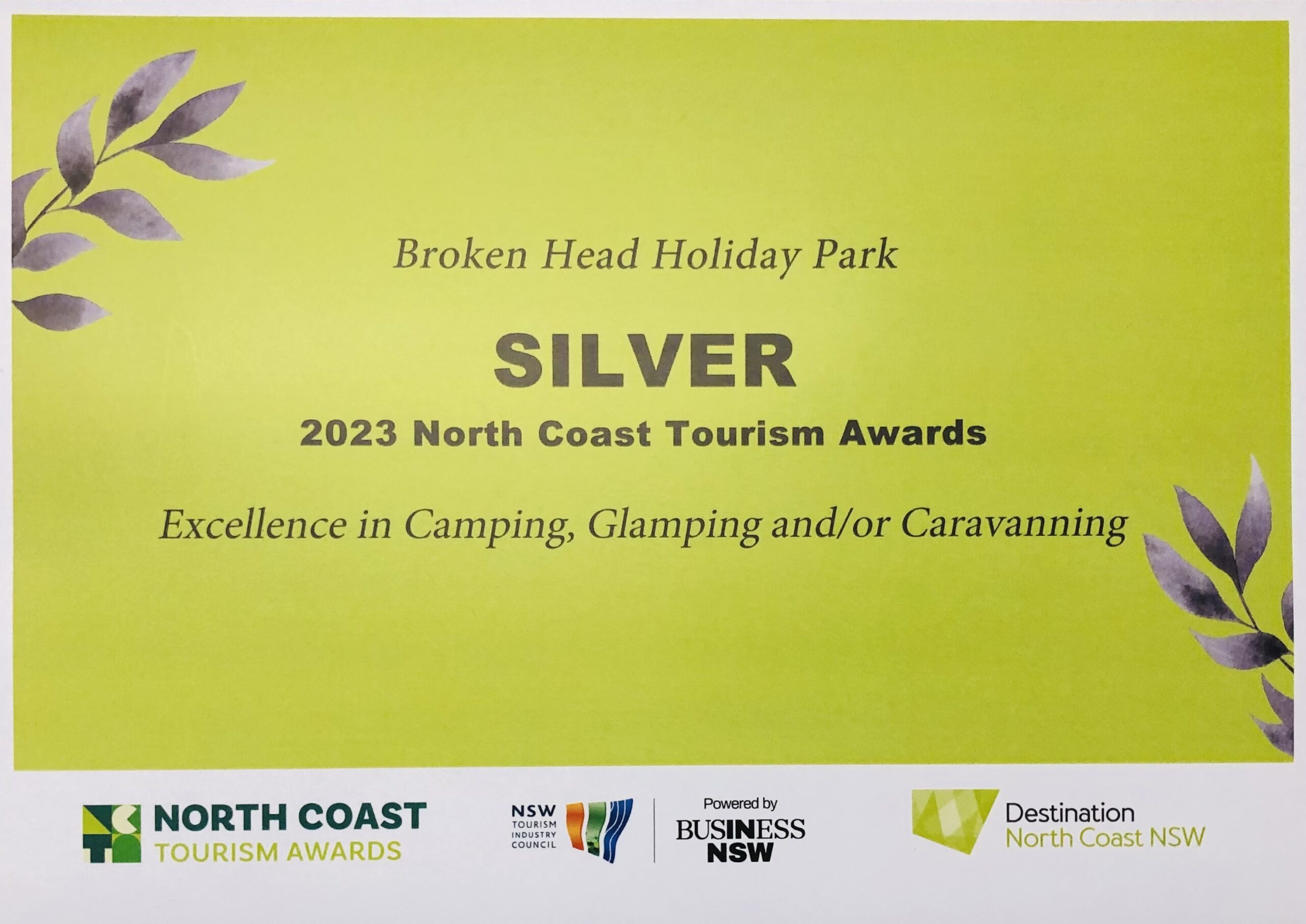
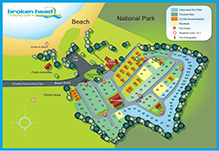

This Post Has 0 Comments